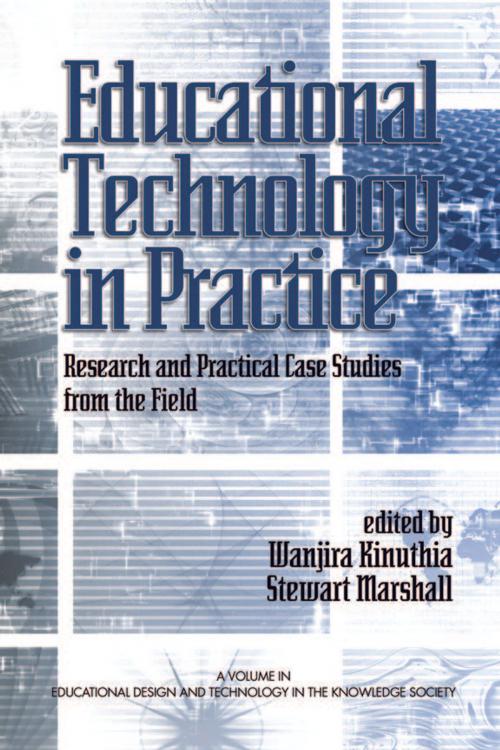Educational Technology in Practice
Research and Practical Case Studies from the Field
Nonfiction, Reference & Language, Education & Teaching, Higher Education, Administration| Author: | ISBN: | 9781607524533 | |
| Publisher: | Information Age Publishing | Publication: | May 1, 2010 |
| Imprint: | Information Age Publishing | Language: | English |
| Author: | |
| ISBN: | 9781607524533 |
| Publisher: | Information Age Publishing |
| Publication: | May 1, 2010 |
| Imprint: | Information Age Publishing |
| Language: | English |
The field of educational technology is one that requires a high level of problem solving critical thinking, and interpersonal skills to solve problems that are often complex and multidimensional. Analyzing cases provides an opportunity to explore professional issues through an environment that allows action researchers, practitioners and students to analyze and reflect on relevant theories and techniques to understand a real problem, ponder solutions and consequences, and develop responses. Hence, this book seeks to provide relevant authentic and realistic cases for such exploration. This book is guided by the premise that the cases presented will serve as a platform for researchers, practitioners and students to share experiences and best practices in both developing and developed contexts, in an endeavor to bridge the knowledge divide. Throughout the book, various challenges are addressed and educational technology tools and strategies are subsequently employed in an effort to minimize the issues. Notwithstanding, the book also highlights successes and accomplishments in areas and contexts in which educational technology is being harnessed, including reaching more learners, providing more affordable options, and building capacity. Because of the interdisciplinary and multidisciplinary nature of the field and the cases, this book is useful not only in educational technology, but also in other fields. A “Facilitator Guide” is provided for each chapter for educators with their learners.
The field of educational technology is one that requires a high level of problem solving critical thinking, and interpersonal skills to solve problems that are often complex and multidimensional. Analyzing cases provides an opportunity to explore professional issues through an environment that allows action researchers, practitioners and students to analyze and reflect on relevant theories and techniques to understand a real problem, ponder solutions and consequences, and develop responses. Hence, this book seeks to provide relevant authentic and realistic cases for such exploration. This book is guided by the premise that the cases presented will serve as a platform for researchers, practitioners and students to share experiences and best practices in both developing and developed contexts, in an endeavor to bridge the knowledge divide. Throughout the book, various challenges are addressed and educational technology tools and strategies are subsequently employed in an effort to minimize the issues. Notwithstanding, the book also highlights successes and accomplishments in areas and contexts in which educational technology is being harnessed, including reaching more learners, providing more affordable options, and building capacity. Because of the interdisciplinary and multidisciplinary nature of the field and the cases, this book is useful not only in educational technology, but also in other fields. A “Facilitator Guide” is provided for each chapter for educators with their learners.















